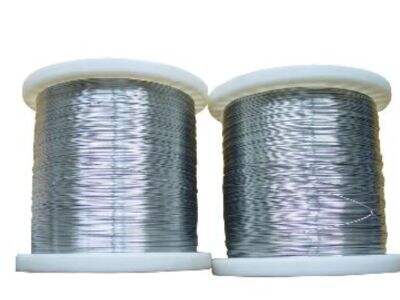Thermocouples are one of the most widely used device in industry to measure temperature with precision. The way in which the materials used to compose thermocouples affect their sensitivity to temperature is an extremely important factor. We at Kuaike Precision Alloy know what is the importance of finding the best Thermocouple Materials for sale. Further information on the effects of thermocouple materials on temperature accuracy and where to get top notch thermocouple materials.
Selecting the Right Thermocouple Wire for Wholesale Use
How Do You Choose the thermocouple materials for Wholesale When choosing thermocouple materials for wholesale uses, focusing on specific factors such as temperature range, chemical resistance and durability is very important. The accuracy and reliability of temperature measurement in different materials is also model-dependent. For instance, Type K thermocouples are used in most of the general applications and offer good accuracy. By contrast, Type J thermocouples (iron and constantan) are good for lower temperature ranges but might not provide the accuracy required in higher temperatures. When using a thermocouple, it is important to select the appropriate sensor material for a given measurement to obtain an accurate temperature reading.
Top Sources for Quality Thermocouple Materials
Reliable thermocouple wire material must be sought to guarantee precise temperature measurements for the industrial processes. We are specialized in types of thermocouple materials selection for different applications. Our thermocouples are made with state-of-the-art production methods and testing apparatus that insures high reliability and accuracy. From thermocouple wires, probes and connectors to thermocouple wire and construction materials, we are ready for your design! Trust Kuaike Precision Alloy when looking for all your thermocouple material and see the temperature difference in your applications.
Why Are Some Thermocouple Materials More Accurate Than Others?
Thermocouples are temperature-measuring devices that range in application from your kitchen stove top to deep space. Correct temperature indications are important to maintain the effectiveness and safety of these operations. A parameter that influences the value of temperature accuracy is the selection of thermocouple materials.
The materials of construction in thermocouples are also different and its properties of these materials may affect the accuracy. For instance, particular materials may exhibit greater temperature dependency thus enabling improved detection. Furthermore, the precision is dependent on the stability of the material at elevated temperatures. Heat resistant material that does not deteriorate at high temperatures is more apt to provide accurate temperature level readings.
Thermocouple materials of higher purity and uniformity are generally more accurate. Such materials tend to be less error or temperature reading fluctuation inducing and produce more accurate data for industrial uses.
Common Problems with Thermocouple Material and Temperature Accuracy
Even with the best thermocouple materials available, there are issues which mutilate temperature accuracy. An issue that is often faced is contamination of the materials, which may happen in production or application. Such contaminates can modify the material properties, which not only influence temperature measurement but also other material parameters.
A further problem is aging superconducting wire. The sensitivity and stability of the materials deteriorate as they age, leading to inaccurate temperature readings. One must calibrate and replace thermocouples at regular intervals to get accurate results.
Mismatch between the materials in a thermocouple pair can also cause errors. Materials and properties of such materials are to be matched to ensure that accuracy is maintained in temperature measurements.
What Are the Best Materials for Industrial Thermocouples?
Mutable properties When choosing which thermocouple alloy to use in an industrial application, both the temperature range and atmosphere must be considered. Type K (chromel/alumel), type J (iron/constantan) and type T (copper/constantan) are the materials typically used for thermocouples.
K-type thermocouples are used in industry for measurements from -200 °C up to 1250 °C. Type J and Type T thermocouples Both types provide superior sensitivity at low temperatures, allowing you to measure a wide range accurately and deliver the information conveniently.
In general, the perfect thermocouple cable specification for industrial purposes must provide a good compromise of sensitivity, stability and durability. Companies can achieve consistent temperature readings and streamline their processes with accuracy and safety in mind by selecting the correct materials.
 EN
EN
 AR
AR
 DA
DA
 NL
NL
 FI
FI
 FR
FR
 DE
DE
 EL
EL
 HI
HI
 IT
IT
 JA
JA
 KO
KO
 NO
NO
 PL
PL
 PT
PT
 RO
RO
 RU
RU
 ES
ES
 SV
SV
 TL
TL
 IW
IW
 ID
ID
 SR
SR
 SL
SL
 UK
UK
 VI
VI
 HU
HU
 MT
MT
 TH
TH
 TR
TR
 AF
AF
 MS
MS
 GA
GA
 AZ
AZ
 MN
MN
 MY
MY
 KK
KK
 UZ
UZ
 KY
KY
 BN
BN

